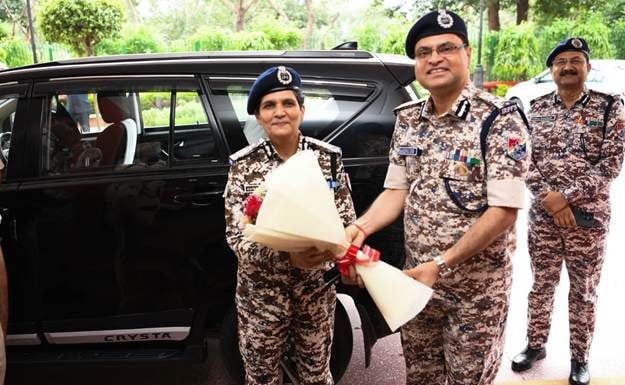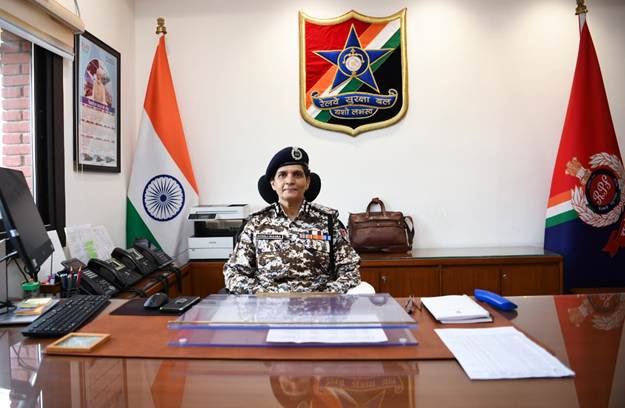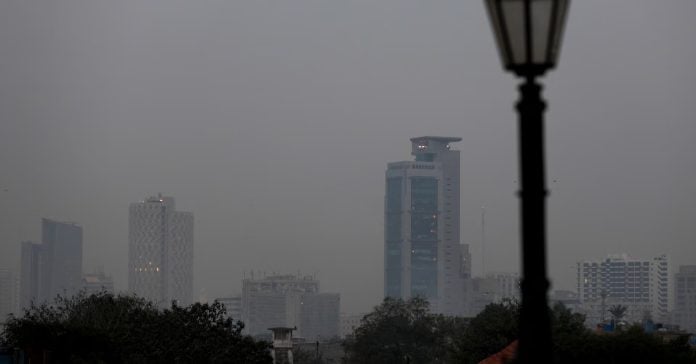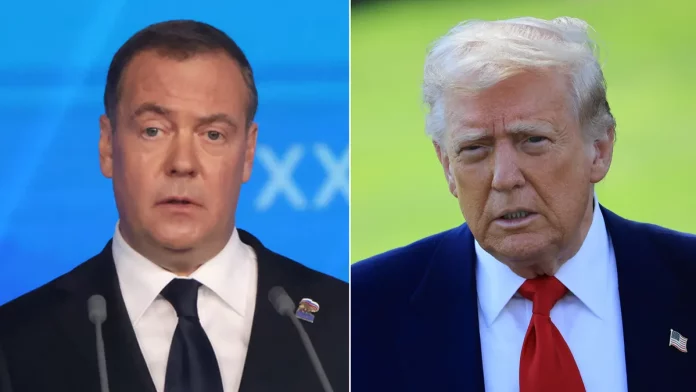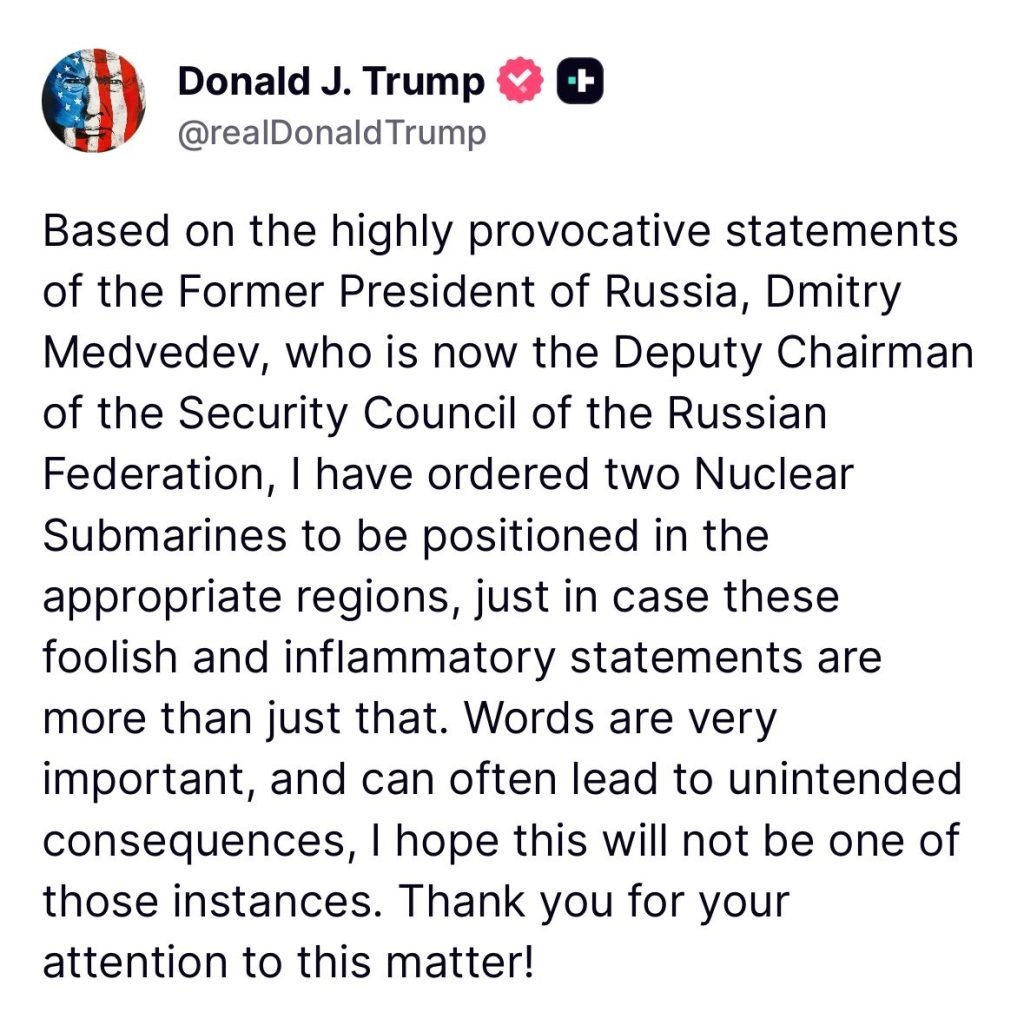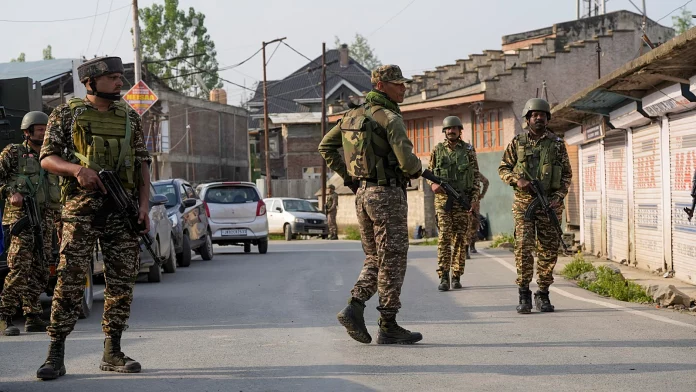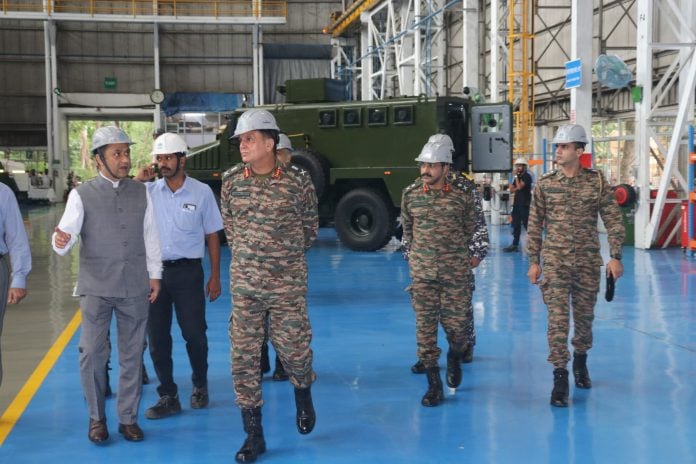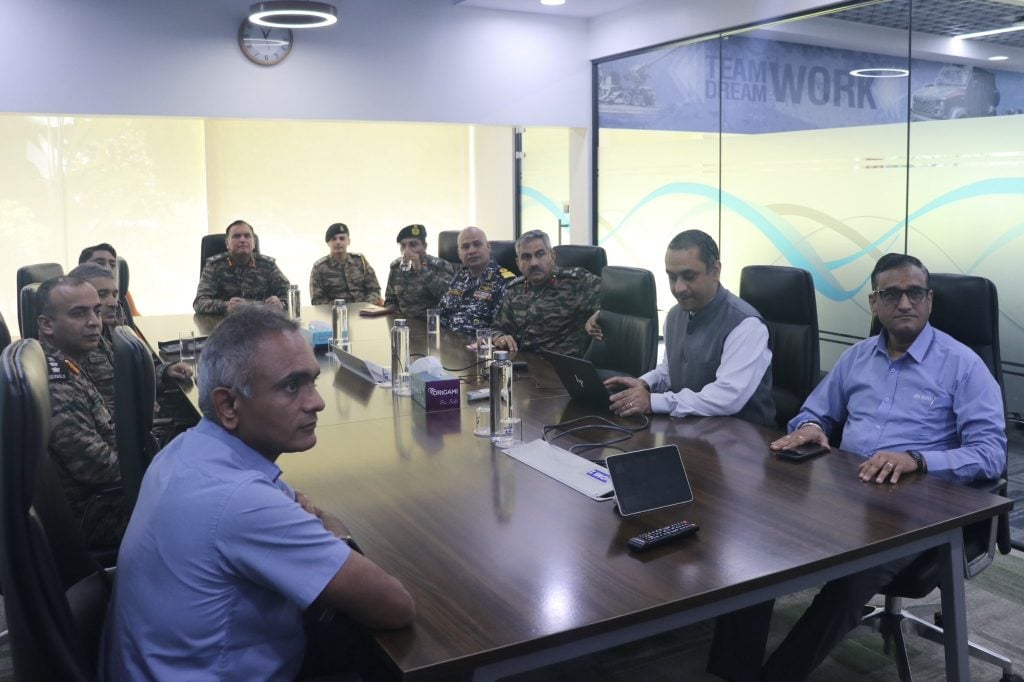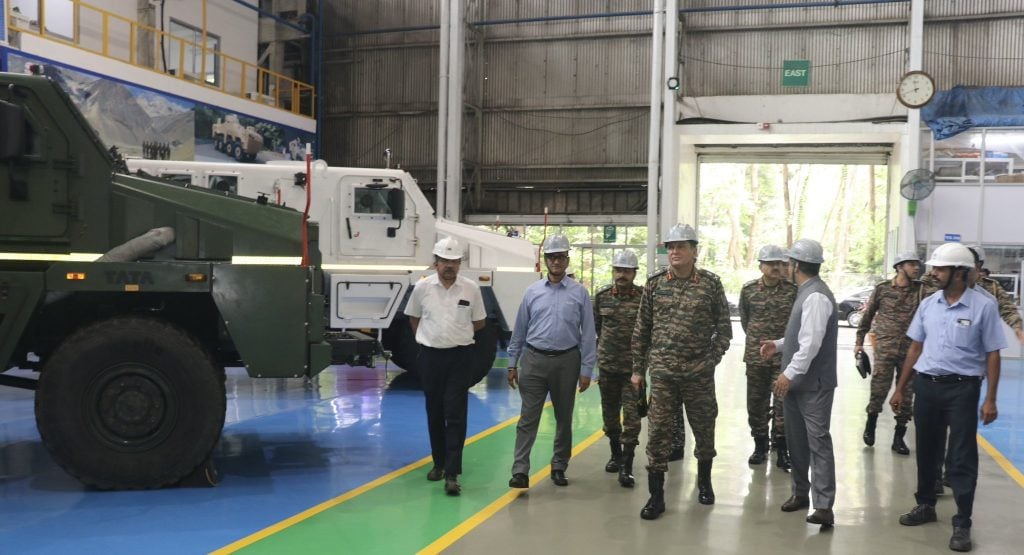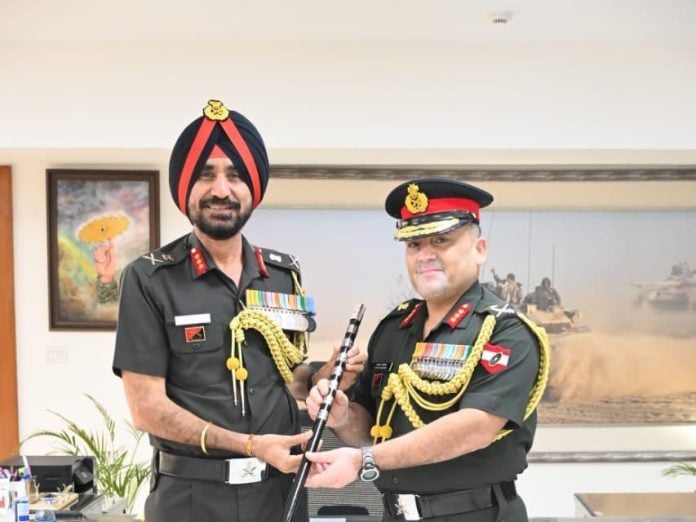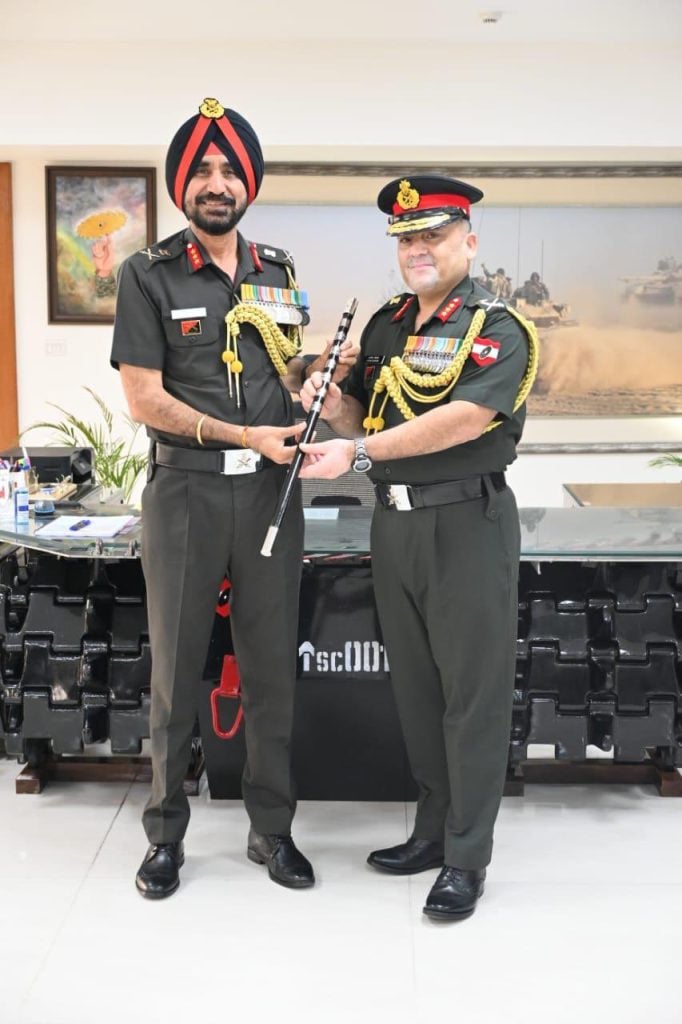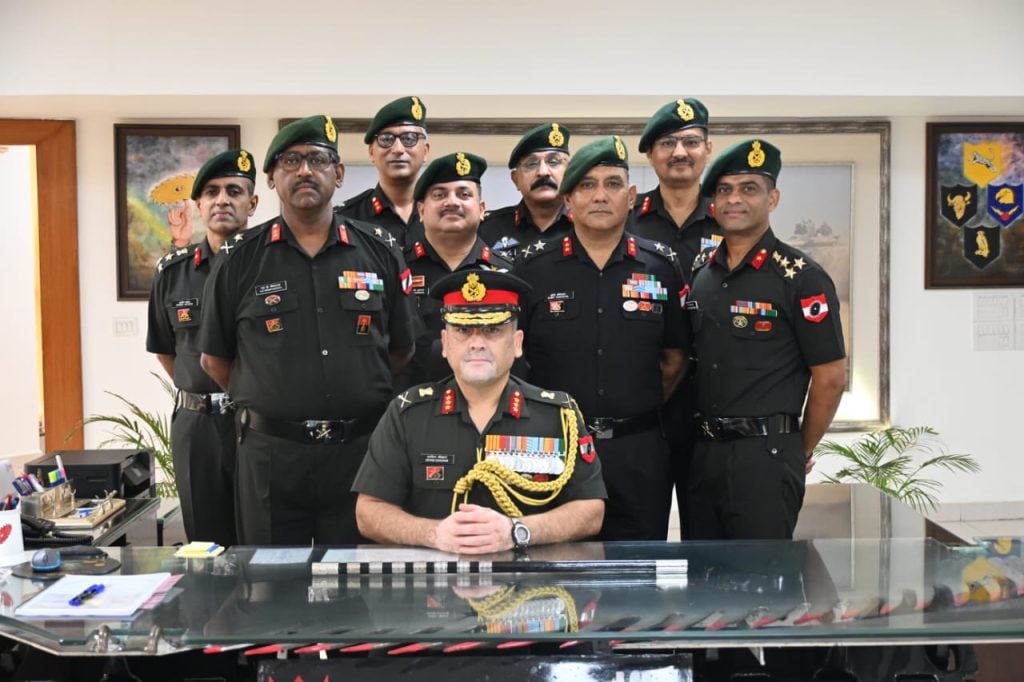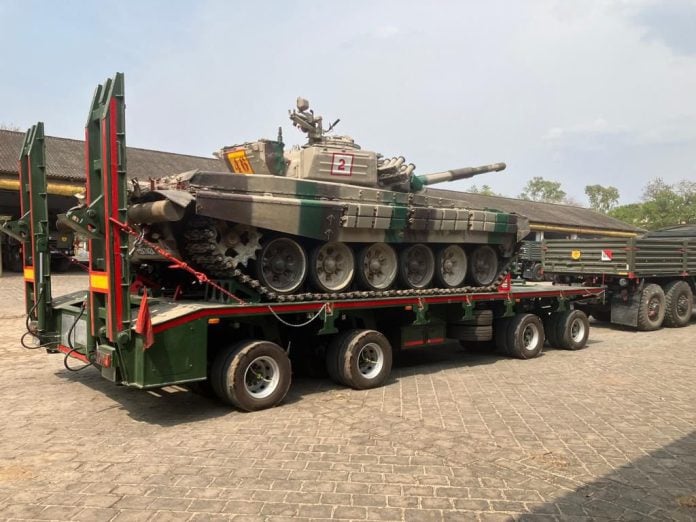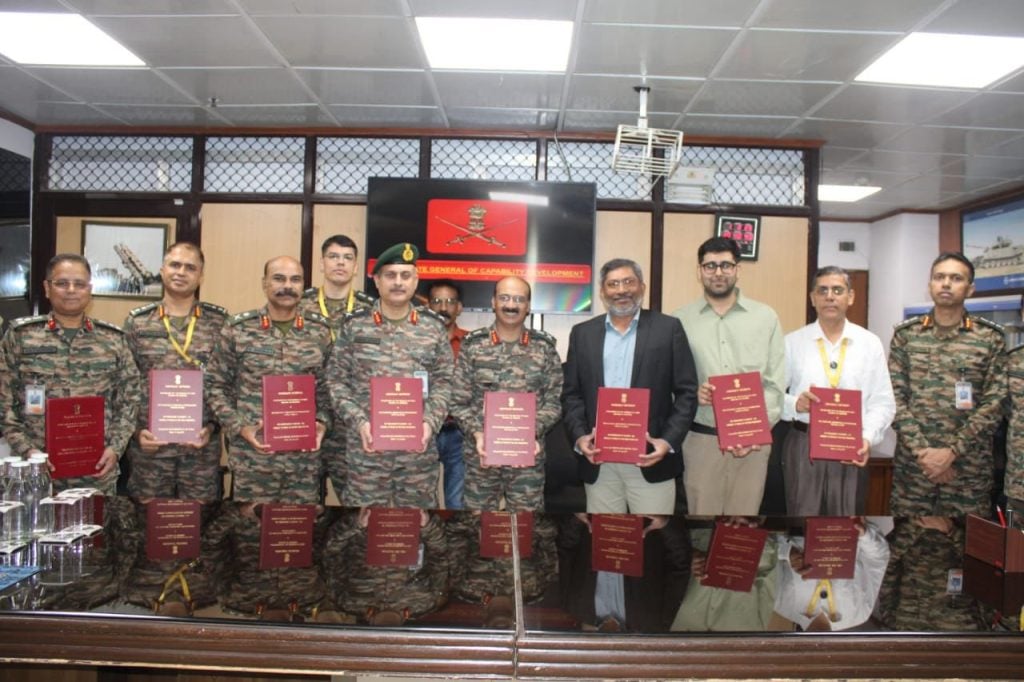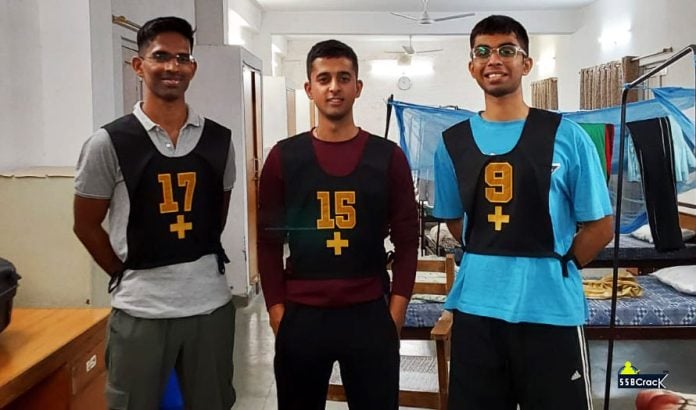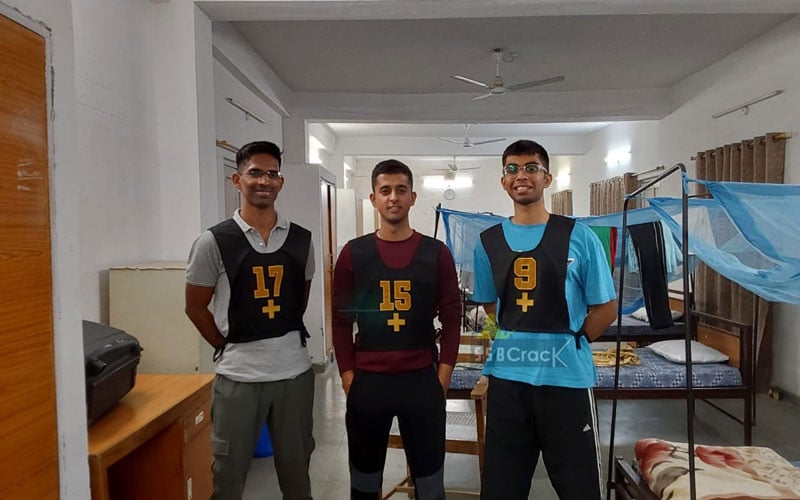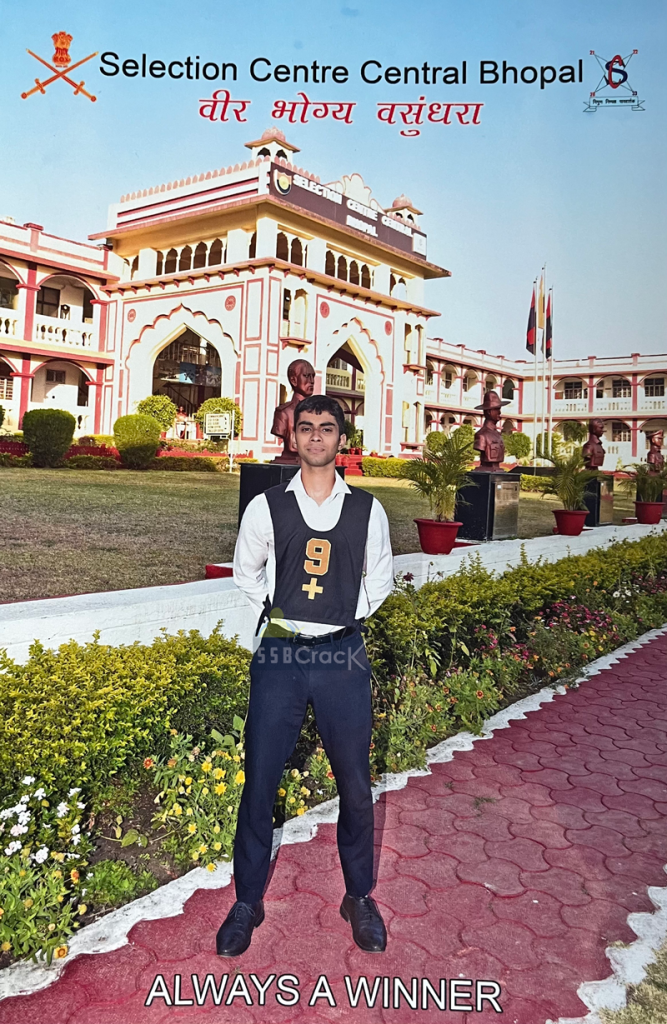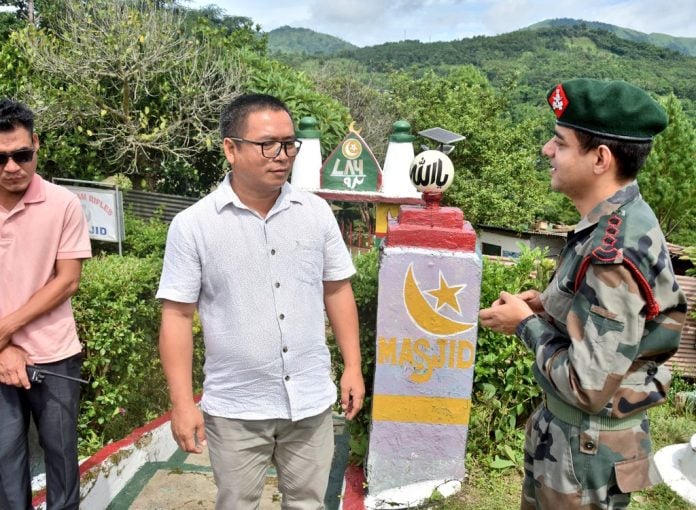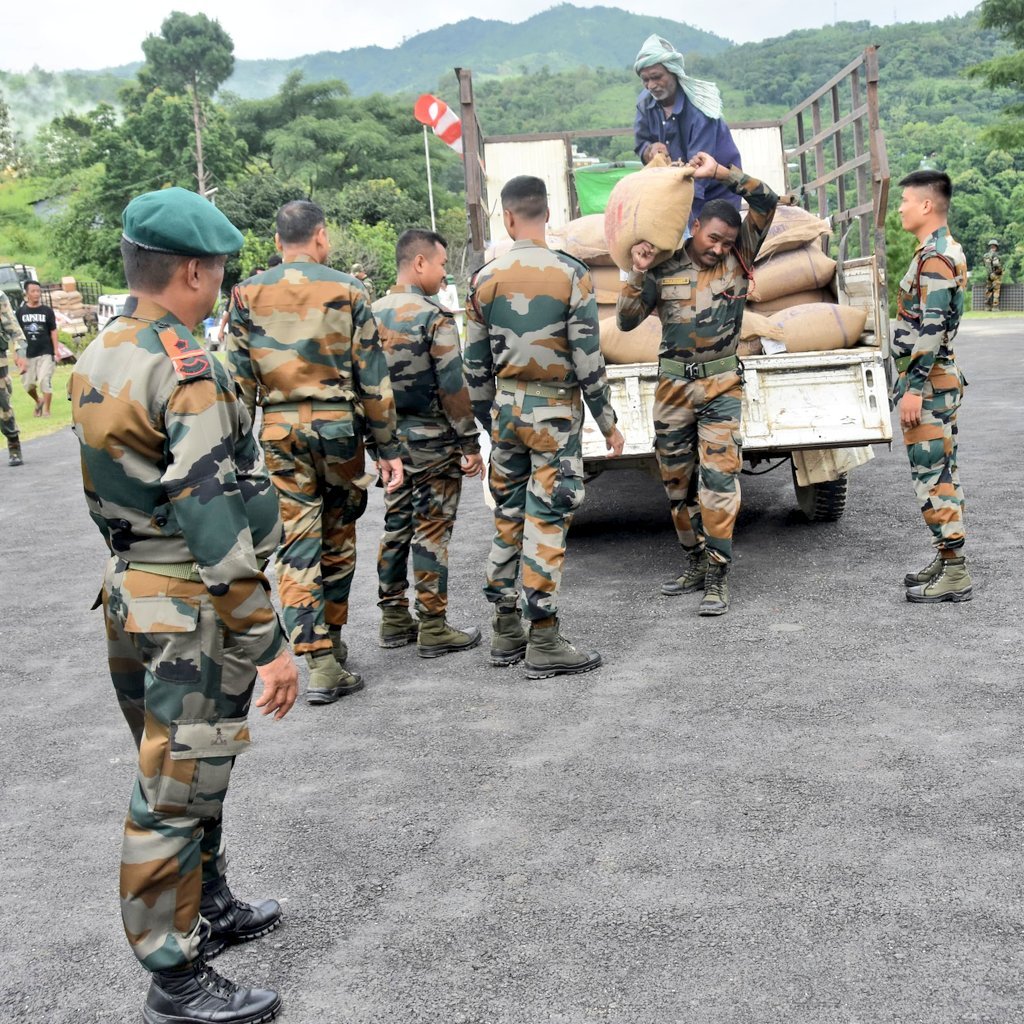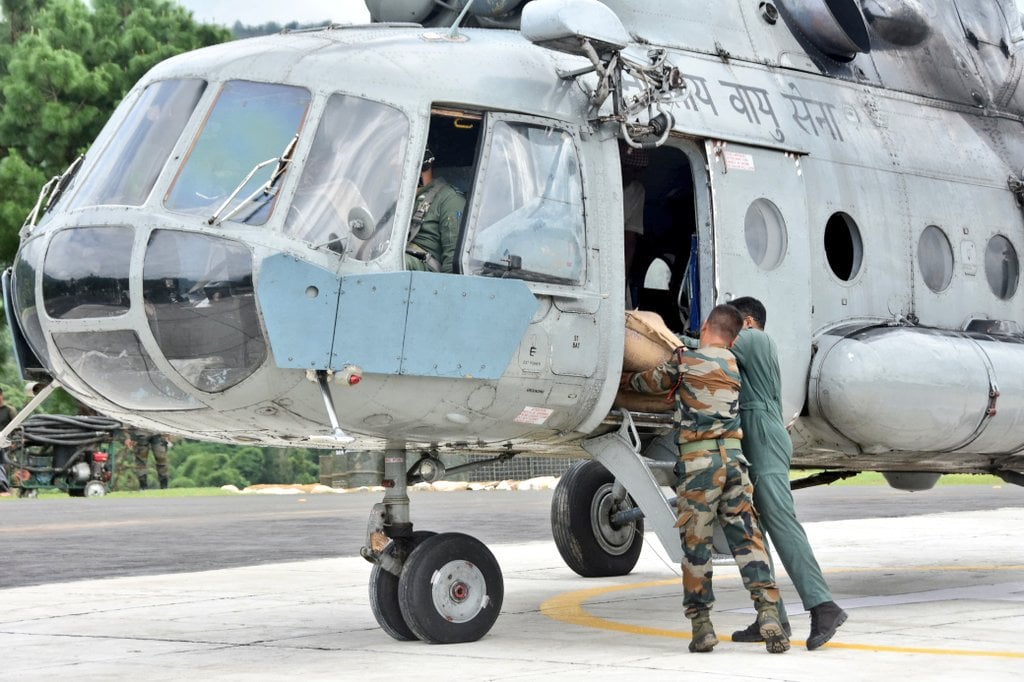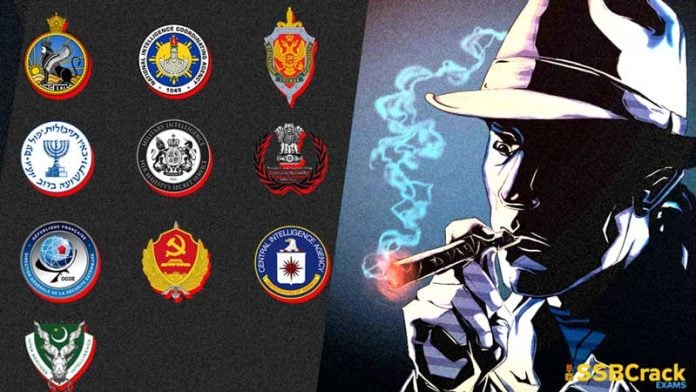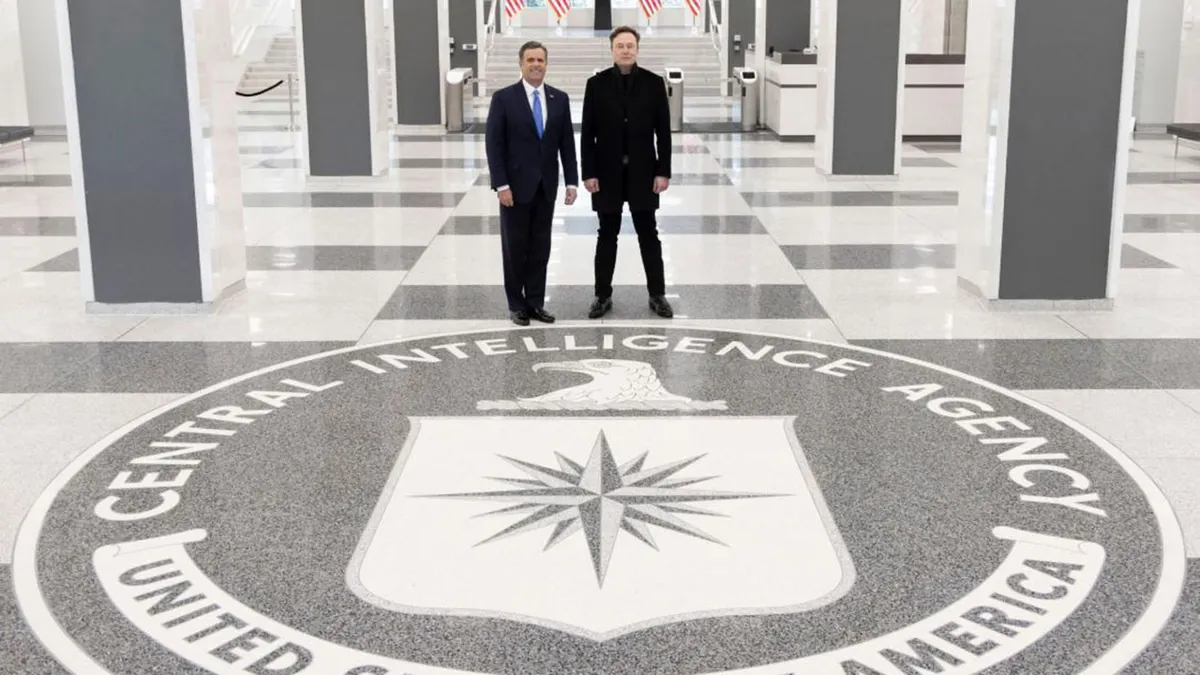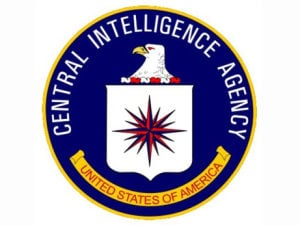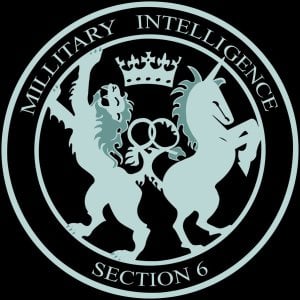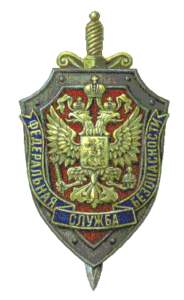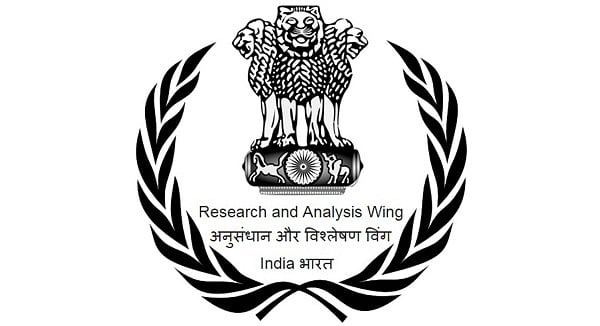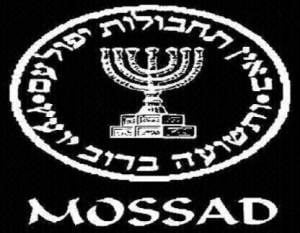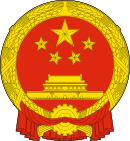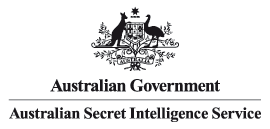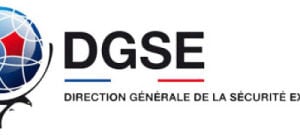I was looking at some old photos today from when I was in school. I got emotional seeing how far I’ve come, but deep inside I know I am still the same 17-year-old kid who had always dreamt of joining the Indian Army.
As a 17-year-old, I started preparing for the National Defence Academy written examination. I was not the brightest in academics and struggled. Nevertheless, I worked tirelessly and put in my all to make this dream a reality. I failed the NDA written exam the first time, and then again the second time. I started having doubts—Is this the end? Do I not have it in me? Am I not cut out for the Army?
At the same time, my board exams had just gotten over and I was giving all the competitive exams to get into a college. I got admission into Symbiosis Institute of Management Studies, and prior to that, I had just given my third attempt at the NDA written exam.
I landed in Pune and visited my friend Ayaan, who was a GC in NDA at that time. I was starstruck by the alluring beauty of NDA—the Sudan Block, the squadron buildings, the cadets in uniform—it all felt very personal to me. I wanted to be like them. I guess my prayers were answered because within two days of visiting NDA, I received one of the best pieces of news of my life—I had finally cleared the NDA written exam on my third attempt.
I was elated. All those sleepless nights of working hard and keeping my head down flashed before my eyes. A few months later, I was allotted SSB Allahabad. I was very nervous for my first SSB attempt. I had worked hard for it, but I was not able to make it—I got conferenced out. Even though I gave my best, I knew in the back of my mind that I had made mistakes and could have performed better.
This was one of the greatest setbacks of my life—probably the first time I felt like giving up. But something inside me told me to work hard and keep going. I always told myself how a few years of hard work would lead to a lifetime of success.
It was around this time I was lucky enough to get admission into Hindu College, University of Delhi, for the course of B.Sc. (Hons.) Mathematics. I struggled to manage my NDA exam preparation and my college semester exams and scored a very poor 5 CGPA in my first semester—probably the lowest in my class. Everybody was better than me.
With great might, I picked myself from the shambles and started preparing for my fourth and final NDA attempt. I didn’t want to study it all over again—it was annoying. I wanted to quit every day, but something inside me told me to never stop trying. Something told me I was meant for this and that if the journey was easy, the destination wouldn’t be worth it.
I managed to clear the NDA written exam once again, and I knew this was my last chance to make my dream a reality. This time, I was allotted SSB Jalandhar. I packed my stuff and headed off. On a personal level, I felt my performance was much better than my previous attempt—but I guess life had other plans. I got conferenced out again. It was a heartbreak.
As soon as the Psych Officer left without announcing my name, I felt as if my heart sank. Four or five candidates from my group got selected, and it felt like I was the only one missing out. I had failed again and was completely devastated. I packed my stuff and went back home. I don’t remember speaking to anyone for quite some time after that. I even had my second semester exams at that time in college and again scored poorly. I even failed in calculus and got a back in it. I had scored 4-point-something CGPA, which was, without a doubt, the lowest in my class.
Days passed and I was not doing well. One fine day, while I was packing to move to a PG near my college, I came across a keychain of NDA my friend Ayaan had given me. It reminded me of my purpose. It reminded me that a soldier would not give up so easily. It reminded me setbacks are common for all—but it is the decision of an individual to stay down or get up and get back to work.
I shifted to a PG and started to live alone—away from the comfort of my home and my parents. I learned a lot of things. I made a promise to myself to focus on all aspects of life. As the CDS exam was a year away, I started to focus on improving my grades in college and getting more involved. I joined a few societies, got involved in departmental events, played sports, and worked very, very hard on my academics.
Everyone in my class was better than me—and this is what motivated me. I reduced my social life, ditched plans with friends, just so I could improve my grades. It all worked in my favour because I scored a 7.73 CGPA in my third semester—a huge jump from failing.
I talked to a few seniors and found out it is important to have a backup. I learned about the career prospects after my degree, learned about the process of placements and internships from complete scratch. All my life, I had just focused on joining the forces, so this was a completely new field I was stepping into.
I held the same pace for my fourth semester exams and scored 7.82 CGPA. I even cleared my second-semester back exam in calculus. Life was getting back on track. I became addicted to it.
I had started preparing for my CDS written exam from the end of June. My father was posted in Shimla, and I went to him. I used to study 10 hours a day, and I loved every moment of it because I knew all this would push me towards my goal. I didn’t want to leave any stone unturned. My dog Leo used to sit beside me for hours while I was at my study table the whole day and night. He always kept my morale high.
In September, I gave my CDS written exam. When the result came out, I was elated. I had cleared the written exam for Officers Training Academy, Chennai, in my first attempt. I guess the knowledge I had gained from the attempts at my NDA exam helped me a lot here to clear the exam in such a short time.
This is what I wanted. I was managing all spheres of life—be it college, my goal, or my social life. This continuous growth just kept on motivating me. I ensured I learned from my past mistakes and made sure not to repeat them. I did not ignore my college studies and managed them with my SSB preparation.
Also Read: My SSB Journey: From 13 Failures to Success in the 14th Attempt
This time, I was allotted SSB Bhopal for my first CDS SSB. My SSB was scheduled for March 17. I gave my college exams before that and scored 7.6 CGPA. I even sat for placements and got two offers in my fifth semester—one as a Junior Project Manager and one as an Entrepreneur in Residence. I wanted to manage everything, and things were going in my favour, thanks to God.
Then came the D-Day. On March 16, I boarded my train from Delhi and reached Bhopal. I stayed at an SSB stay near the centre and found out I was the youngest of my batch—I was just 20 while all the other candidates were 22–25. The next day, I went to the reporting centre. I was very nervous, but I remembered a quote by Capt Manoj Kumar Pandey, PVC:
“If death strikes me before I prove my blood, I swear I will kill death.”
With adrenaline pumping in my veins, I gave my all in the screening test and got screened in. About 32 of us were screened in. I was allotted chest number 29. The next day, our psych tests began, and apart from my cacography, I believe I performed decently.
After our psych tests were over, some candidates were scheduled for their interviews—and I was one of them. I quickly changed into a fresh pair of trousers and shirt, ate my lunch, and sat in the waiting room. The buzzer finally buzzed, and I stepped into the room of the Interviewing Officer and sat on the chair.
My interview wasn’t the best, but one thing I know for sure is that I was honest and stayed true to myself. I portrayed myself as who I was. The interview got over, and in the subsequent days, our GTO tasks took place. I believe I performed better than my previous attempts.
During the day of the conference, my conf only lasted two minutes—and I knew 100% that I was not going to get selected. I sat in the conf room anxiously waiting. Normally, everyone used to talk and joke around, but this time was different. The anxiousness of the result had everyone silent. There was not a single sound as we all eagerly waited.
The Psych Officer came in and gave us that same old scripted speech (people who have gone to the SSB would know). Then he started announcing the chest numbers of the recommended candidates. He had already announced the chest numbers of three candidates before he paused and said, “There is one more.” I knew that my selection depended on it.
He finally called out—Chest No. 29. I couldn’t register it and didn’t respond. He called out my name again… Chest No. 29! I finally realized my name had been called out and stood up from my chair—breaking the table due to how fast I got up. I said my roll number and joined the other three candidates who had been recommended.
I couldn’t feel anything at that moment. It felt unreal. It felt like a dream. It took me a few minutes to register what was happening. Tears rolled down my eyes—but I wasn’t crying. I was more relieved than happy. I felt at peace. Suddenly, the grass was greener, the sun was brighter, and the air was fresher.
I wanted nothing more than to call my parents and tell them I made it. I remembered all the sleepless nights, the countless setbacks, the days I felt like giving up. I remembered my family, my girlfriend, and my friends who always believed in me even when I didn’t. I remembered Leo, who always sat beside me while I was preparing for my written exam. I’m sure wherever he is right now, he would be proud of me.
I was on cloud nine and could not contain my happiness. I passed my medical exam in the subsequent days and headed back to Delhi. Everyone around me was very happy for me, and I am lucky to have people like them in my life.
I had always wished to meet the expectations of all those who believed in me—and maybe for the first time, I did. As iron shapes iron, I have always wanted to have a positive impact on people around me and motivate them. I really hope that I have inspired people—just by 1 percent—to never, ever give up on their dreams.
I studied for my final semester exams, scored 7.73 CGPA, and bid adieu to Hindu College.
My joining is in October, and I am ready for this new chapter of my life.
